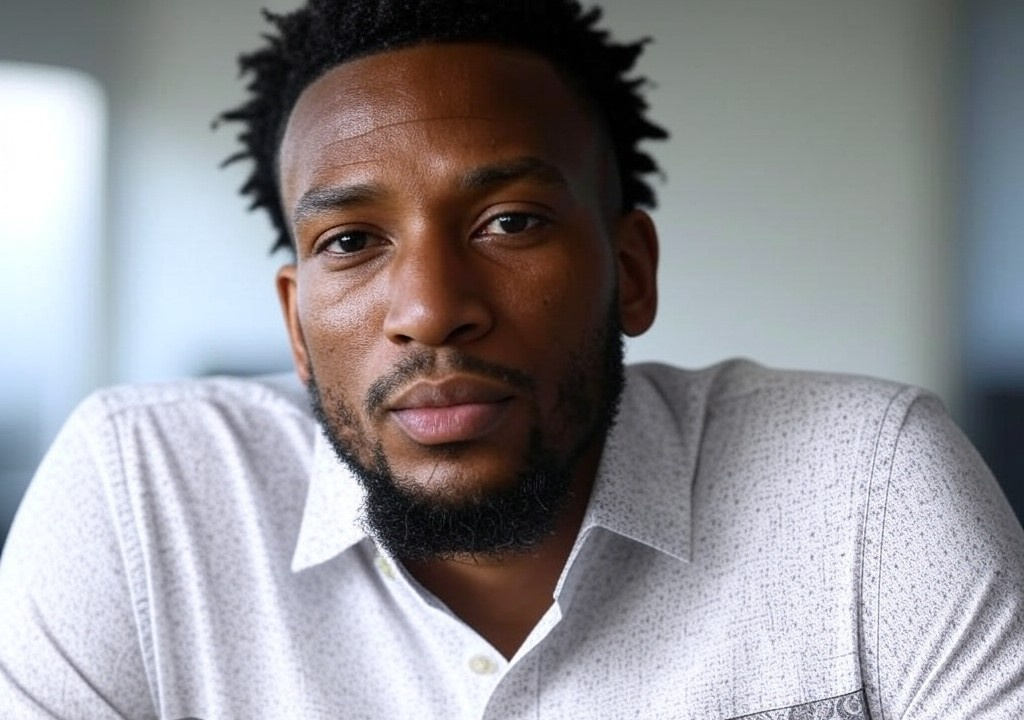“Your grandfather walked ten miles each way to school in the snow, uphill both directions.”
Sound familiar? That particular folklore wasn’t my family’s myth, though we had plenty of others. Growing up on the South Side of Chicago, the tales my family spun acted as roadmaps. Stories that supposedly explained who we were, where we came from, and why we did things the way we did. But looking back, I realize one story in particular stuck to me like hot pavement on a summer day—a story that defined my choices for far too long until I finally started to question it.
Let me take you back.
"Love Is All About Sacrifice."
That was the mantra I was raised on, repeated with the kind of reverence usually reserved for scriptures. My parents said it. My grandparents lived it. Even the sweet-but-nosy church elders swore by it during post-service coffee hours. The idea was simple: Real love meant sacrificing for your partner—your time, your money, your dreams if necessary.
At first, it seemed romantic. Noble, even. Until I got older and realized this belief came with some… complications. Like the time my aunt told me how she deferred her dream of culinary school to support my uncle’s barbershop business, yet years later, in a Thanksgiving dinner dispute over sweet potato pie recipes, he admitted he didn’t even remember her dream. Or my parents, whose love I admired but who often seemed exhausted reducing their relationship to a constant partitioning of who deserved to come first.
For a while, I carried this idea of love everywhere. Into my teenage crushes, where I let my high school girlfriend monopolize my afternoons because "making her happy" meant skipping my basketball practices. Into college, where I said "no problem" far too often when my partner wanted to "talk things out" instead of letting me finish my mid-term paper.
And, oh, the arguments I heard around me! I once witnessed a church couple, the Jacksons, argue over who sacrificed more after 30 years of marriage, their debate turning into a twisted kind of love Olympics:
“I gave up my record collection!”
“You think I enjoyed working double shifts??”
Like, dang—if love is just cancelling yourself out for somebody else, what's the point?
When the Story Didn’t Add Up
The cracks in that belief began to show during a particularly brutal breakup. She was a nurse, someone with one of those nurturing hearts that makes you feel like you’ve won the lottery, and I convinced myself that being with her meant constantly prioritizing her needs over mine. When she had late shifts, I stayed up, even if I had work early. When she said my dream of writing a novel wasn’t “realistic” and suggested I try teaching full-time instead, I nodded, trying to convince myself her advice was "love.”
Spoiler alert: It wasn’t.
When she ended things, she hit me with a line that still sticks with me: “I feel like you don’t even know who you are anymore.”
Ouch. At the time, I blamed her. But after some stewing (and a little help from James Baldwin to guide my reflection), I started thinking critically about this whole "sacrifice equals love" thing. Did my family’s myth forget one key detail? Love might involve give and take, sure—but does it mean losing yourself entirely?
Love Isn’t a Pie Chart
Here’s what they didn’t tell me in all those family stories: sacrificing for love doesn’t mean you shrink yourself smaller and smaller. Love isn’t supposed to divide you, slicing off pieces of your identity and placing the bigger half on your partner’s plate. It’s meant to be a collaboration. More like a jazz duet than a solo act.
Let me give a real-world example. Take Miles Davis and John Coltrane. Pure magic, right? Now imagine if Coltrane had let Miles drown out all his solos because he didn’t want to be “selfish.” That’s no bop. That’s background noise. That’s missed potential.
No one wants to be background noise in their own life.
Rewriting the Myth
Here’s where I started to shift. The more I considered this idea, the more I realized I didn’t want a love built entirely on sacrifice. I wanted what my parents meant to teach me with their story—a love based on care, yes, but also honesty and mutual respect.
So I started asking myself different questions. Questions like:
- Am I compromising, or am I completely disappearing?
- Have I communicated my needs, or am I silently expecting them to "just know"?
- Is their happiness really more important than mine, or is that guilt talking?
Let me tell you, folks, this kind of internal audit is not for the faint of heart. It’s like flipping through your photo album of past relationships and realizing you forgot to show up for your own pictures.
Real Love: The Remix
Through asking those questions—and therapy, because yes, your boy did the hard work—I started crafting my new version of “love.” One where you don’t measure worth by the cuts you’ve endured but by the connection you build together.
Here’s the remix:
- Sacrifice can’t be one-sided. Real love is a two-way street, not an off-ramp where only one person gets to where they’re going.
- Boundaries are sexy. Seriously. Knowing where you end and your partner begins allows you to actually meet each other halfway instead of trying to morph into their dream version of you.
- You’ve got to keep showing up as yourself. Don’t play the supporting role 24/7—you deserve top billing in your own story.
Encouraging the Next Verse
I don’t blame my family for believing their myth. In some ways, it had roots in survival—love was supposed to be the glue that kept marriages and families together through thick and thin, through layoffs and late-night dinners heated on a stovetop that took too long to warm up.
But here’s the thing: we’re allowed to rewrite the script. We’re allowed to take the lessons they gave us and adapt them to fit our own rhythms.
So if you were raised on a similar story, let me leave you with this: love doesn’t mean disappearing into someone else’s shadow. Love means walking side by side, harmonizing, sometimes even taking turns leading—but never, ever erasing yourself entirely.
Carry that with you. Share it, too. Who knows who might need to hear it?




















